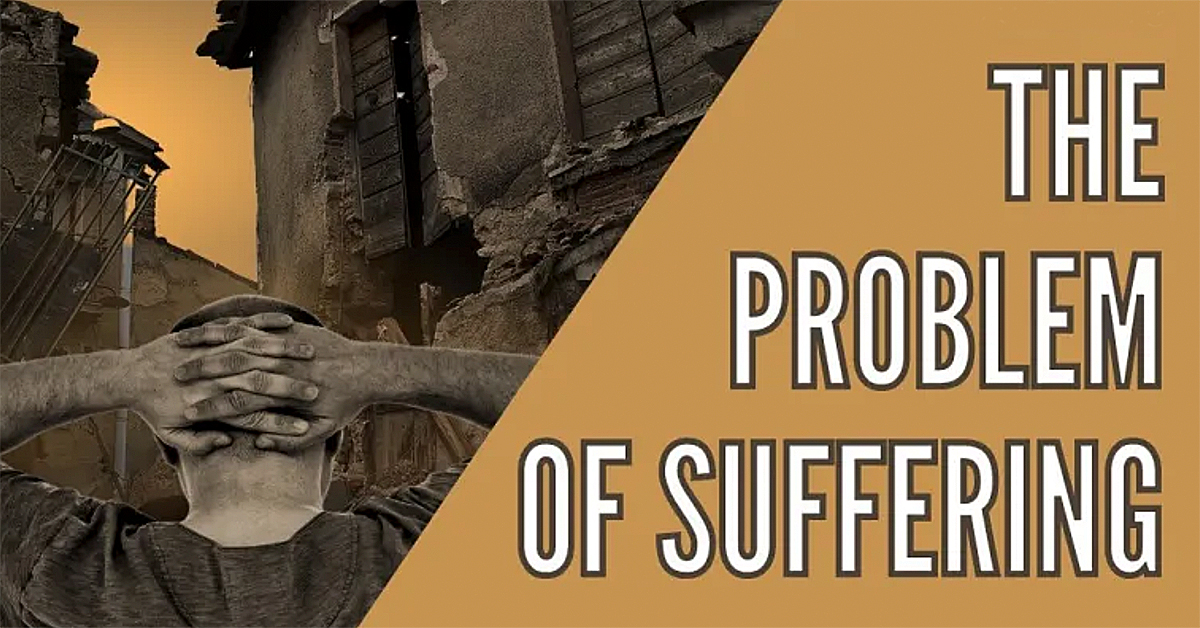Job 7:1a “Is not all human life a struggle?”
By far, the most common question asked about faith is this: Why does God allow suffering? After all, if He is God and all-powerful, couldn’t He just take away our pain and suffering?
The problem of pain has troubled theologians for centuries. Critics have used it in an attempt to disprove the existence of an all-loving and all-powerful God. We’ve all struggled justifying our faith in the midst of suffering. While some pain is the result of sin, some pain is redemptive, as in the miracle of childbirth; other pain seems to have no explanation and just doesn’t make sense. In fact, our English word absurd came from the word surd, meaning “irrational or beyond meaning.”
Job must have felt that way when he suffered. It’s interesting that God never explained Job’s suffering to him, yet loved and honoured him, nonetheless. Though faith may not explain suffering completely, it is meant to transcend it. True faith endures suffering while maintaining a right view of the character of God. This was the outcome of Job’s trials.
One of the oldest views is that suffering is a result of sin.
Romans 5:12 “Therefore, just as sin entered the world through one man, and death through sin, and in this way death came to all men, because all sinned.”
As a result, we live in a fallen and sinful world, and we are subject to suffering even when it may not be our fault. Keeping an eternal perspective helps when suffering. Knowing that this isn’t heaven but that, one day, God will deliver me from suffering into His eternal kingdom gives me perseverance. This was the apostle Paul’s perspective:
Romans 8:18-23 “Yet what we suffer now is nothing compared to the glory He will reveal to us later. For all creation is waiting eagerly for that future day when God will reveal who His children really are. Against its will, all creation was subjected to God’s curse. But with eager hope, the creation looks forward to the day when it will join God’s children in glorious freedom from death and decay. For we know that all creation has been groaning as in the pains of childbirth right up to the present time. And we believers also groan, even though we have the Holy Spirit within us as a foretaste of future glory, for we long for our bodies to be released from sin and suffering. We, too, wait with eager hope for the day when God will give us our full rights as His adopted children, including the new bodies He has promised us.”
It also helps to know that Jesus suffers with us when we suffer.
Hebrews 4:15 (MSG) “We don’t have a priest who is out of touch with our reality. He’s been through weakness and testing, experienced it all – all but the sin.”
Maybe we need to transform the question. Instead of asking why God allows suffering, maybe we need to ask how we should respond when we suffer. The suffering of Job teaches us that knowing God is more important than knowing why. The writer of Hebrews goes on to say,
Hebrews 4:14-16 “Therefore, since we have a great High Priest who has gone through the heavens, Jesus the Son of God, let us hold firmly to the faith we profess. For we have not a High Priest which cannot be touched with the feeling of our infirmities; but was in all points tempted like as we are, yet without sin. Let us therefore come boldly unto the throne of grace, that we may obtain mercy, and find grace to help in time of need.”
In my times of suffering, I’ve found His throne of grace a safe place to run. Despite not knowing why, knowing God cares and is there to help – always strengthens my faith.

